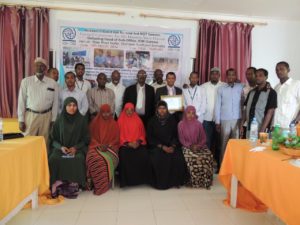Dr. Hussein Hassan is a Resolution Fellow from Class 5. He pitched his social venture, Community Led Total Sanitation, to Resolution at the Youth Assembly at the United Nations in 2013. In addition to being a Resolution Fellow, Dr. Hassan has also mentored other Resolution Fellows in his role as a Guide.
==
Please introduce yourself.
My name is Dr. Hussein Hassan, and I am a 35-year old public health specialist with an interest in primary health care and health-system strengthening. I have a Ph.D. in public health with 15 years of professional experience in humanitarian responses to complex emergency settings, for a variety of organizations. I am a multiple award-winning humanitarian activist, a research fellow, and the former chairman of the Eastern African Youth Forum.
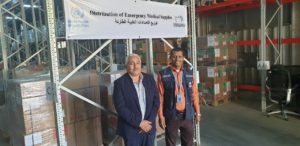
What three adjectives would people use to describe you?
Talented, Honest, and Hard Worker.
What is your favorite book and why?
I like to read Nelson Mandela’s Long Walk to Freedom. Mr. Mandela achieved an ambitious goal in a very challenging and complicated context. I try to learn about his leadership skills through this book.
What is the challenge your work seeks to address?
I serve vulnerable and marginalized people in need. For the last 15 years, I have been involved in saving the lives of hundreds of thousands of displaced families, refugees, migrants, marginalized groups, and people with special needs in a number of countries with complex emergency settings including Yemen, Libya, and Somalia.
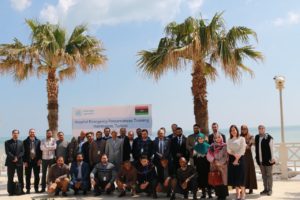
How are you addressing these challenges?
Over the past 15 years, I have been working in disaster management, relief coordination, and public health service provision advocacy. I have worked in Yemen, Libya, Uganda, Kenya, Ethiopia, and Somalia.
In Ethiopia, I coordinated a conversation on HIV and Gender-based Violence (GBV) with the goal of enhancing HIV prevention and awareness in remote areas.
In Somalia, I established the first ‘People Living with HIV’ network with support from religious leaders, traditional elders, women groups, and youth activists. I also contributed to the emergency response efforts during the 2011 drought and famine in Somalia and Ethiopia by developing and managing comprehensive public health, WASH, and GBV programs that served thousands of internationally displaced people.
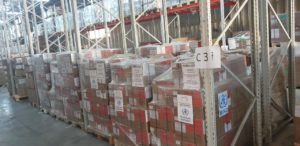
In Yemen, I served malnourished women and children in the remote villages of Hajja and Hudaydah provinces by deploying field teams to improve access to health and nutrition services. I also established and led the first humanitarian hub of the UN and NGOs in Eastern Yemen and contributed to efforts to break a siege that was imposed on Taiz. I negotiated with different armed groups and non-state actors in the area and eventually forged a deal to facilitate access to humanitarian workers and humanitarian goods. Humanitarian workers used these deals to deliver thousands of tons of medical supplies, food, and educational tools to the districts of Taiz which remained under siege. I also contributed to the drafting of numerous UN Security Council briefings which were used to keep world leaders up to date on what was happening in Yemen. I also coordinated resource generation and distribution during the 2016 cholera outbreak.
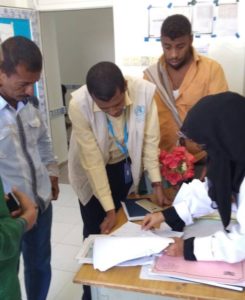
In Uganda, I motivated and mentored UNEGA Farm activists who were deployed to remote villages in order to improve the livelihoods of underserved Ugandans. Equally, I supported the expansion of a school health program concept in rural areas with limited access to health centers and clinics. The initiative led to a significant reduction of primary school dropouts and improved health and nutrition in adolescents living in remote districts.
What do you hope to achieve through your humanitarian work?
My goal is to improve access to basic health services for all needy people and contribute to the reduction of avoidable disabilities, deaths, and injuries. This is in line with Sustainable Development Goals.
What excites you about the Resolution Fellowship?
I feel proud to be part of the Resolution Community. I feel it is my family. I enjoy the motivation, appreciation, and encouragement I receive from the Fellowship program. The professionalism and motivation of the Resolution team have contributed to boosting my morale and overcoming work-related stress and frustration.
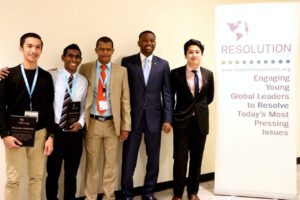
How does the Fellowship help you achieve your goals?
The Fellowship exposed me to a wide-ranging number of resources to benefit from. As a result, I got access to learning opportunities and training courses that contributed to my career development. I also interacted with a number of Fellows from all over the world. It is exciting to learn from others, share experiences, and expand our networks.
What advice would you give other college students who are looking to start a social venture?
My advice to college students is to be ambitious, never give up, keep trying, and be patient. There are lots of bumps on the road but success is always achievable. Success comes with lots of challenges and you need to be very strong to overcome them. Sometimes you need to take risks (without compromising your safety). That is very important. As long as you are honest and have a good heart, everything will be fine. In my experiences, I have come across huge challenges ranging from work-related stress, intimidation, harassment, life-threatening attacks, and more. At some point, I thought about giving up and surrendering, but I didn’t. I continued because there are needy people who need my support.
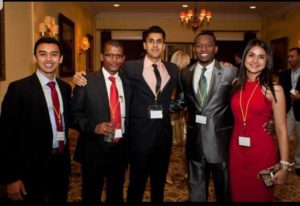
What do you love most about working with communities?
I love to work at the grassroots level because I believe there is lots of wisdom within the communities which leads to sustainable solutions. I always advocate for meaningful involvement of communities in the design, management, and monitoring of development and humanitarian projects. That will guarantee success and sustainability.
What role do young leaders play in the world today?
Young people have the resilience and talent to bring widespread change in this world. They can address intractable issues such as climate change, pandemics, poverty, and hunger. We have seen the impact of young voices on policies in a number of countries. This has to be supported!
What are your goals for the future?
I see myself as a top-performing young leader in well-established organizations like the UN. I plan on enhancing my leadership skills and continuing my involvement in humanitarian work. My ambition is to promote and expand my portfolio from a country-level to a regional and global one. My professional experiences have proven that I can achieve my goals and I am committed to doing so.
